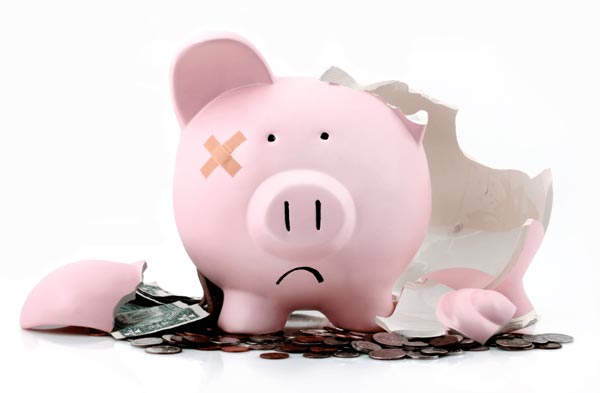Table of Contents
If you or someone you love struggles with a gambling addiction, they may need help from friends, family, and professionals. Gambling addiction will negatively impact every aspect of life if ignored.
In this article, we’re taking a look at the stages of gambling addiction as well as how to overcome the addiction.
Stages of Gambling Addiction
While it isn’t as often discussed as other forms of addiction are, gambling addiction affects a significant number of people in the United States. While some people can enjoy going to the casino as an occasional recreation, others find themselves trapped in the net of gambling addiction.
The following are the phases of gambling addiction to be aware of and avoid.
1. The Winning Phase
This is the part of gambling that gets many people hooked. Someone with consistently bad luck at gambling is getting off easy, as winning sparks the addiction. During the winning phase of gambling addiction, the player gets a taste of what it is like to make that easy money. With the smiling face of Lady Luck – or, in some cases, considered skill – on the gambler’s side, it becomes easy to rationalize the idea of putting in more funds to continue the profitable streak. Loan offers are considered short-term deals for making the most of the windfall, and pulling money out of savings for gambling purposes is considered an investment.
2. The Losing Phase
An adage states that “what goes up must come down.” This is painfully true for those with a gambling addiction. The high of winning is almost guaranteed to be followed by the equal-and-opposite experience of a losing streak. By the time this inevitable phase occurs, those who have been swept away by the winning phase of the process may find themselves owing a large amount of money to those lenders or may find that too much money has been invested in the gambling to make this month’s bills.
Just enough small wins may pepper this losing streak to keep the dream of making it big alive. Chances are good that the gambler may feel a need to start telling some lies during this phase, as loved ones will begin to notice that money is starting to disappear. The mindset of the person who is addicted to gambling is will be that, with enough time and money continuing to be spent, the winning streak will resume.
3. The Desperation Phase
As the elusive winning streak continues to refuse to make another appearance, the ongoing loss of finances results in desperation. Rather than taking cues from the deteriorating situation and cutting losses, the person addicted to gambling will double down on efforts to win. The singular focus on gambling as the only way out of this hole – which, ironically, also created this hole – will begin to take a toll on the gambler’s mental health. They will be continually on edge and typically will begin taking this stress out on others. Arguments, misdirected blame, and obsessive behavior are hallmarks of this stage. There may even be temptations to engage in illegal behaviors to make some quick cash.
4. The Hopeless Phase
During the desperation phase, the gambler still holds out some sense of hope that things will turn around. There is yet a lower level of gambling addiction to reach. During this final phase, it has become apparent that there is no clear way out of the mess. The debts have piled up, the life savings are spent, and loved ones may have already separated themselves from the chaos. Those who descend into the hopeless phase of gambling addiction are likely to find themselves alone and may even consider suicide as the only escape from the tragedy which has been played out.
Recovering From Gambling Addiction
Even after reaching the so-called hopeless phase, hope remains. Just as there are four phases of developing and sustaining a gambling addiction, there are four identified stages to pass through on the way out of the addiction. Though it is always much better to escape from addiction before hitting the proverbial bottom, even those at the bottom can follow this established road map out from the abyss.
Relabel/Rename
As you may have noticed, the term “addict” has not been used in this article. While it may come off as mere semantics, the terms used to describe a negative situation are very important. Referring to yourself as an addict is different than considering the addiction to be something that is outside of your true, desired nature. Calling the addiction for what it is – an outside intruder on your quest for living your best life – empowers you to take the steps necessary to rid yourself of the unwelcome addiction.
Reattribute
It is similarly important that those who have experienced a gambling addiction do not proceed to place all of the blame for the situation on their shoulders. Human beings are designed to seek out pleasurable experiences, and our brains are designed to be flexible and adaptive to whatever activity we continually engage in. Over time, the brain of someone who gambles excessively will become rewired to seek out the behavior as something potentially gratifying. Recovery from a gambling addiction requires time and effort to rewire the brain to no longer crave it.
Refocus/Realign
Just like with other addictions, recovery from a gambling addiction requires dedication to the idea that gambling is no longer an option. Cravings for the high that was once experienced will resurface, and the person in recovery will need to learn to take charge of the thoughts and actions which follow. Focusing on the future while remembering the devastation of the past will be a necessary task, along with finding new and healthier substitutions for the activity of gambling.
Revalue/Reassess
Getting ourselves out of a mess doesn’t do much good unless we also learn what got us into the mess in the first place. Whether the gambling addiction started as an escape from boredom or a lack of plans for a financial future, getting to the root of that issue will be imperative for avoiding similar mistakes. Work with a counselor to determine what changes need to be implemented in your life in the future to empower you to avoid falling into another addiction trap.
Conclusion
Now that you understand the stages of gambling addiction, you can work toward overcoming the addiction. It will probably require the support of your friends and family and a professional’s support.
Sources:
- Schaffer A. How the Brain Seeks Pleasure and Avoids Pain. MIT Technology Review. Published June 27, 2017. Accessed October 10, 2022. https://www.technologyreview.com/2017/06/27/150948/how-the-brain-seeks-pleasure-and-avoids-pain/
The Heights Treatment Editorial Guidelines
There is a vast amount of misinformation online especially as it relates to health & wellness. We have made it our mission at The Heights Treatment to provide accurate, medically sound content that has been medically reviewed by a doctorate level clinician so that you can trust the information contained within our website.


